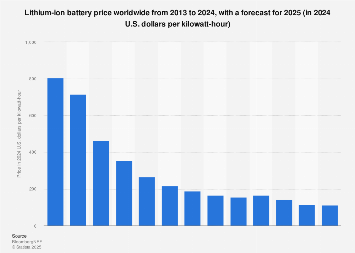I asked bard
The cost of building an 11 terawatt battery storage system would depend on the type of battery technology used. For lithium-ion batteries, the cost would be approximately $100 billion. For other battery technologies, such as pumped hydro, the cost would be lower.
Here is a breakdown of the cost of building an 11 terawatt battery storage system using different battery technologies:
- Lithium-ion batteries: $100 billion
- Pumped hydro: $50 billion
- Compressed air energy storage: $60 billion
- Flow batteries: $80 billion
The cost of building an 11 terawatt battery storage system would also depend on the location of the system. For example, the cost would be higher in areas with a high cost of land and labor.
Overall, the cost of building an 11 terawatt battery storage system would be significant, but it is a cost that is becoming more affordable as battery technology continues to improve.
Here are some additional factors that would affect the cost of building an 11 terawatt battery storage system:
- The size and capacity of the individual batteries
- The efficiency of the battery system
- The lifespan of the batteries
- The cost of maintenance and repairs
The cost of building an 11 terawatt battery storage system is a complex issue, but it is one that is becoming increasingly important as the world transitions to a cleaner energy future.
The cost of lithium-ion batteries for energy storage has been declining in recent years. In 2019, the LCOE (levelized cost of energy) for lithium-ion battery storage was $187 per megawatt-hour (MWh). By the first quarter of 2023, the LCOE had dropped to $150 per MWh for battery storage with four hours' discharge duration. This is a decline of 76% since 2012.
------
Feels cheap to me, i suspect the number is wrong?






